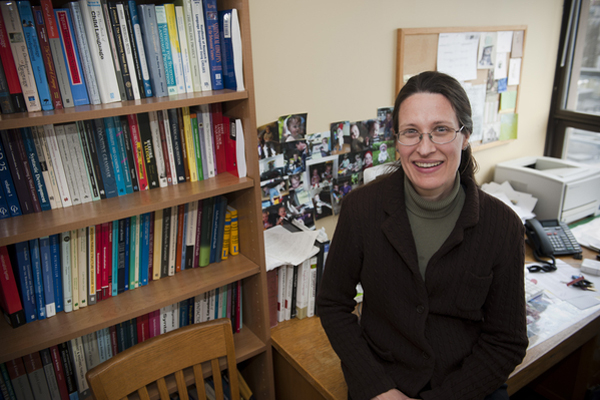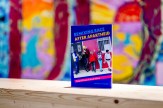3Qs: Not your mother’s neologisms

Oxford Dictionaries Online, the online-only subsidiary of the Oxford English Dictionary, recently added several words to its database that highlight our widespread usage of digital language in everyday conversation. The addition of words such as “lolz,” “photobombing” and “mwahahaha” are a testament to our ever-growing symbiotic relationships with technology and social media. We asked Heather Littlefield, associate academic specialist and head advisor of the linguistics program in the College of Science, to comment on our modern taste for digital jargon.
Is the integration of Internet neologisms into everyday conversation inevitable? What are some examples of digital language from the past that have made their way into our daily vernacular?
Yes, it does seem inevitable. When a culture integrates something new — a new technology, for example, or an art form or belief system — new vocabulary enters the language, giving us the vocabulary we need to talk about it. There are many ways of handling this — sometimes a language will borrow words from another language, but often we draw on the resources of our own language. Since the United States has been at the forefront of developing computer, Internet, cell phone and digital technologies, many of the words for those technologies come from English.
Keeping in mind that these technologies have only been in widespread use for the last 20 or 30 years, the words that have entered the language are very new. But they are so pervasive and widely used that we don’t even think of them as new anymore! Think about mouse, virus, cookie, thumbnail and icon: these words are now used in a completely different sense than had originally been intended. Or think about all of the new compounds that we’ve created: upload, download, log-in, homepage, World Wide Web, website, flashdrive, smartphone, and so on. Consider acronyms such as GPS, OMG, LOL, PC, DVD, CD, URL and USB; blends such as malware (from malicious software) and blog (weblog); clippings such as app (short for application) and net (for Internet); and the use of tradenames and products such as Google, Skype, iPod, and iPhone.
Since this new lingo is so relative to today’s society, what are the chances of the words becoming outdated and seen in hindsight as poor additions to the Oxford Dictionaries Online?
Languages are in a state of constant change because they reflect the needs of their speakers. Speakers alter the linguistic system to keep it useful and up-to-date: They create new words and forget old words that are no longer useful. Think about the many terms for horse-drawn vehicles in the 18th and 19th centuries: We might recognize a few of the words, but we probably wouldn’t be able to distinguish one type from another. As long as the technology is being used, the language will keep those words; once they aren’t useful, they’ll be lost from the general lexicon.
Dictionaries are really just a way of tracking what the language is doing. Dictionary editors add and omit words all the time; they try to capture what is current. I think the Oxford English Dictionary — the ultimate English reference book — does this quarterly. When words become too outdated, the dictionary might just omit them (the OED doesn’t really do this, as it’s a repository of our historical knowledge of the language). This is why it is so fun to read dictionaries from other eras, although dictionaries themselves are fairly new, having been developed as we think of them in the 17th century.
Do you anticipate a backlash from traditional linguists or rhetoricians following the addition of these modern digital terms?
This is a great question. The catch line for a new article in Time magazine is “Do you ever get the feeling that we’re getting less articulate?” It seems to be a common complaint that our language is deteriorating because of recent change. I can’t speak for rhetoricians, but linguists would not have any prejudice about new words entering the language or being added to a dictionary. We know that as the times change, speakers’ needs change, and so does the language. It’s inevitable, and it’s a wonderful, interesting process to be a part of. Just think of all those new words we get to use.





